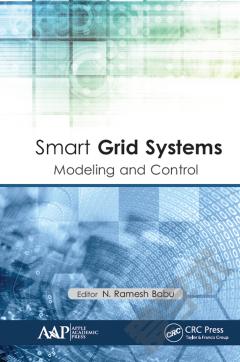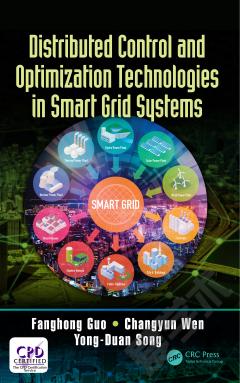Smart Grid Systems —— Modeling and Control
----- 智能电网系统:建模与控制
Electric power systems are being transformed from older grid systems to smart grids across the globe. The goals of this transition are to address todayelectric power issues, which include reducing carbon footprints, finding alternate sources of decaying fossil fuels, eradicating losses that occur in the current available systems, and introducing the latest information and communication technologies (ICT) for electric grids. The development of smart grid technology is advancing dramatically along with and in reaction to the continued growth of renewable energy technologies (especially wind and solar power), the growing popularity of electric vehicles, and the continuing huge demand for electricity. Smart Grid Systems: Modeling and Control advances the basic understanding of smart grids and focuses on recent technological advancements in the field. This book provides a comprehensive discussion from a number of experts and practitioners and describes the challenges and the future scope of the technologies related to smart grid. Key features: provides an overview of the smart grid, with its needs, benefits, challenges, existing structure, and possible future technologies discusses solar photovoltaic (PV) system modeling and control along with battery storage, an integral part of smart grids discusses control strategies for renewable energy systems, including solar PV, wind, and hybrid systems describes the inverter topologies adopted for integrating renewable power covers the basics of the energy storage system and the need for micro grids describes forecast techniques for renewable energy systems presents the basics and structure of the energy management system in smart grids, including advanced metering, various communication protocols, and the cyber security challenges explores electric vehicle technology and its interaction with smart grids
{{comment.content}}








 京公网安备 11010802027623号
京公网安备 11010802027623号